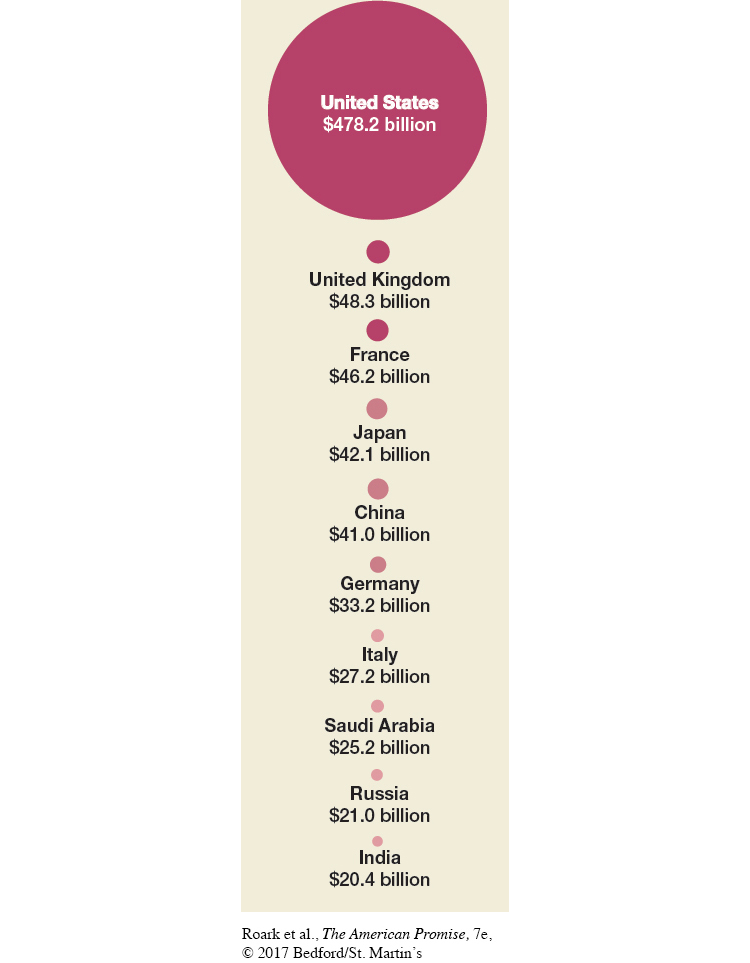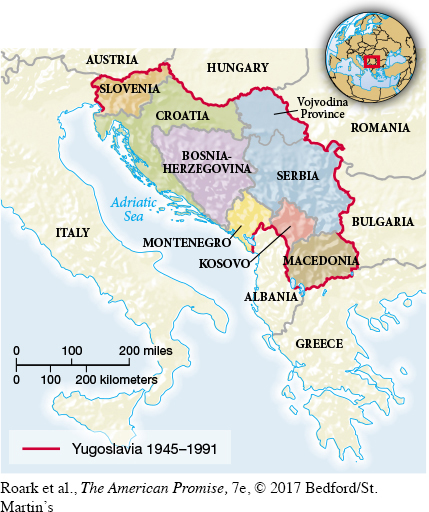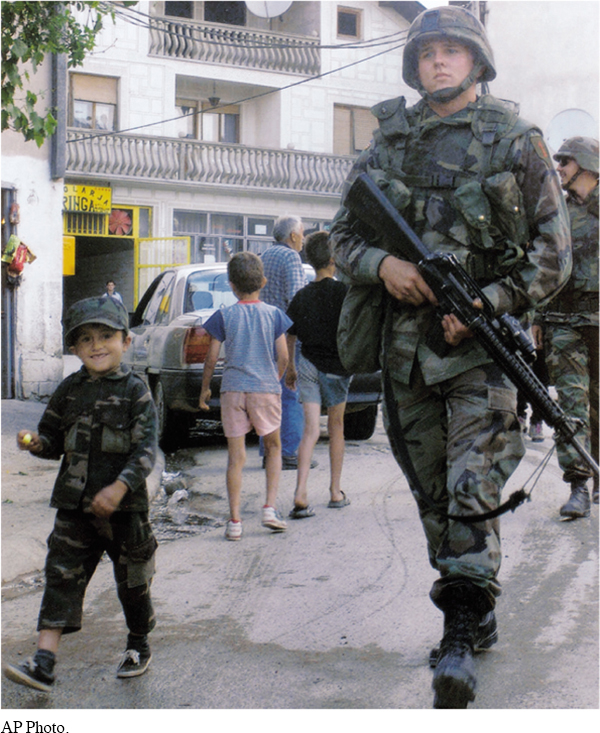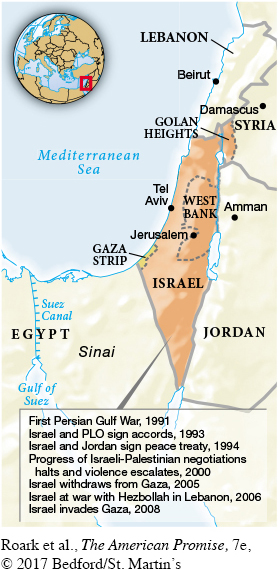The American Promise: Printed Page 903
The American Promise, Value Edition: Printed Page 820
The American Promise: A Concise History: Printed Page 935
Defining America’s Place in a New World Order

In 1991, President George H. W. Bush declared a “new world order” emerging from the ashes of the Cold War. As the sole superpower, the United States was determined to let no nation challenge its military superiority or global leadership: It spent ten times more on defense than its nearest competitor, the United Kingdom (Figure 31.2). Defining principles for the use of that power in a post–
The American Promise: Printed Page 903
The American Promise, Value Edition: Printed Page 820
The American Promise: A Concise History: Printed Page 935
Page 904Africa, where civil wars and extreme human suffering rarely evoked a strong U.S. response, was a case in point. In 1992, President Bush had attached U.S. forces to a UN operation in the northern African country of Somalia, where famine and civil war raged. In 1993, President Clinton allowed that humanitarian mission to turn into “nation building”—an effort to establish a stable government—
In Eastern Europe, the collapse of communism ignited a severe crisis when, after the Communists were swept out of power in Yugoslavia in 1989, ruthless leaders exploited ethnic differences to bolster their power. Yugoslavia splintered into separate states and fell into civil war. The Serbian aggression under President Slobodan Milosevic against Bosnian Muslims, which included rape, torture, and mass killings, horrified much of the world, but European and U.S. leaders hesitated to use military force. Finally, in 1995, Clinton ordered U.S. fliers to join NATO forces in intensive bombing of Serbian military concentrations. That effort and successful offensives by the Croatian and Bosnian armies forced Milosevic to the bargaining table, where representatives from Serbia, Croatia, and Bosnia hammered out a peace treaty.

In 1998, new fighting broke out in the southern Serbian province of Kosovo, where ethnic Albanians, who constituted 90 percent of the population, demanded independence. When the Serbian army retaliated, in 1999, NATO launched a U.S.-led bombing attack on Serbian military and government targets that, after three months, forced Milosevic to agree to a settlement. Serbians voted Milosevic out of office in 2000, and he died in 2006 while on trial for genocide by a UN war crimes tribunal.
Elsewhere, Clinton deployed U.S. power when he could send missiles rather than soldiers, and he was prepared to act without international support or UN sanction. In August 1998, bombings at the U.S. embassies in Kenya and Tanzania killed 12 Americans and more than 250 Africans. Clinton retaliated with missile attacks on training camps in Afghanistan and facilities in Sudan controlled by Osama bin Laden, a Saudi-


The American Promise: Printed Page 903
The American Promise, Value Edition: Printed Page 820
The American Promise: A Concise History: Printed Page 935
Page 905To defuse the Israeli-